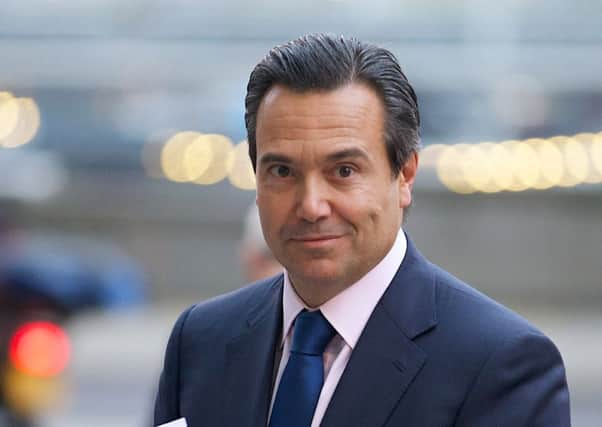Lloyds calls for high street banks ‘ring-fencing’


Antonio Horta-Osorio said that creating firewalls between the two activities was a key element in ensuring that the banking sector could give strong support to the wider economy.
He said ring-fencing would stop savings deposits being used to finance riskier global investment activity, sometimes referred to by critics as so-called “casino banking”.
Advertisement
Hide AdAdvertisement
Hide Ad“To people who say ring-fencing is too burdensome, I would simply say that having an effective ring fence can, over time, reduce the level of capital required in the banking sector,” Horta-Osorio told the British Bankers Association annual conference.
In a wide-ranging speech, he said that splitting high street banking arms from investment banking divisions, together with tougher capital rules, improved liquidity and better regulation, would make sure that banks would never again be a burden for the British taxpayer in case of failiure.
Earlier this month, former Barclays chairman Sir David Walker said ring-fencing “would irrevocably damage” the UK banking system.
The British taxpayer spent a total of £65 billion bailout out Royal Bank of Scotland and Lloyds at the time of the crash. Analysts said yesterday that Lloyds would be less affected by ring-fencing as it had a far smaller wholesale banking division than some of its competitors, such as HSBC and Barclays.
The Lloyds boss also praised the government’s drip-drip method of further reducing its stake in Lloyds this year from about 25 per cent to 18 per cent, down from an initial 43 per cent at the crash.
“I personally think that the dribble-out was a really smart thing to do because it enabled the government to sell without any concerns about inside information,” he said.
“It’s just a blind programme where they sell 15 per cent, on average, of daily trading volumes.”